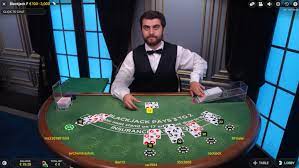Do not be fooled by sensational movies or books about individuals or teams of individuals who have beaten the house at blackjack by counting cards. That is all in the past. Unless you are the newcomer, unfamiliar with card counting, please avoid counting cards when playing blackjack. You will lose if you do and will be out a large sum of money.
Card counting is card counting. Counting cards is the process by which you track the ratio of high cards to low cards in the deck and adjust your wager accordingly. You bet more in favorable situations and lower you bets in unfavorable situations.
Sports bettors may count cards in a varied manner, from simple single-deck counting (where you just count one deck at a time) to complicated six-deck counting.6 Deck card counting is the most accurate. Good quality handicappers will usually have 6 decks of cards in their possession and will be working with that many cards, counting as well as playing. When you start learning to count cards, you can get a good feel for the pace of the game and decide where you most confident in your bets and in how much money you are risking on each game.
Even best know persons who are familiar with card counting are not cheating, per se, but taking advantage of the system is, in fact, cheating. If I were to say to a friend, "He has these really terrific cards about the threes," my friend might say, "Yes, I believe that." But, by saying that, I would not be understood. In fact, what he might actually say is, "He has these three really terrific cards about the panen138," or something to that effect.
Another card counting method is the Red Seven method. Many gamblers believe this method was first used by Steve Lipscomb, a card shark and instructor at Big Poker School in Las Vegas. According to Lipscomb, the Red Seven is a counting system that starts with the seven as the low card and every following card is added to it until the seven is no longer present. If the numberSeven appears in the series, you have a very good count. This method adds a lot of variety to your card counting experience.
As an example, if you receive what are known as "friendly" cards in a game, you add one or more points from 7 - 11, and the ace as a low card. You wouldn't count these cards, and neither would the dealer. These cards are what's known as neutral.
If the ace of spades is played and you have a count of more than -4, you have to subtract the ace of spades from your count. The result is -3 + 2 - 1 = +1 point. If the ace of spades is played and your count goes over +4, the result is -4 - 2 - 1 = -1 point.
Lipscomb explains the process this way:"If the cards are dealt in the same order, you will end up with a total count of 0. That's the start of the count. Every time the cards are dealt, you have an edge over the house. Eventually the house will be finished with it, and the player will always win. The longer the count, the more even the cards will be. The player wins by making bets when there are more cards in the deck to come out. The casino by contrast, NEVER plays with more cards in the deck. Rather they try to keep you playing as long as possible, and to chase your money with free show. They are very good at it."
While we can't confirm whether or not the "most probable outcome" explanation is the accurate one, one thing is for sure. island ijie has won countless dollars from poor decisions with complicated explanations. Sometimes it's hard to believe that he could get away with it for so long. But he did. Maybe more of us would have such luck if we were his age.
